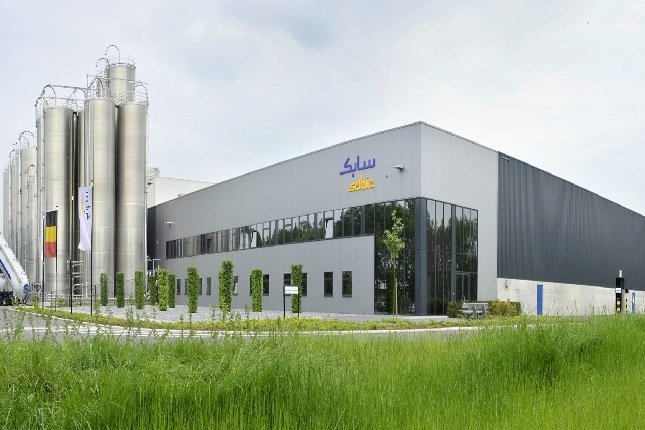In recent years, Saudi Arabia has implemented a series of transformative labor reforms as part of its ambitious Vision 2030 initiative. These reforms are designed to create a more dynamic, inclusive, and competitive labor market that attracts global talent, supports local workforce development, and enhances workplace standards. As companies across the Kingdom navigate this evolving regulatory landscape, they are adopting innovative strategies to ensure compliance while driving productivity and growth.
This article explores the key changes in Saudi labor laws, how companies are adapting to these reforms, and the challenges and opportunities these changes bring.
1. The Key Changes in Saudi Labor Laws
Saudi Arabia’s labor reforms focus on improving the business environment, empowering employees, and reducing dependency on expatriate labor in favor of a Saudization strategy (known as Nitaqat). Major changes include:
a) Labor Reform Initiative (LRI)
Introduced in 2021, the LRI aims to enhance worker mobility and labor rights by:
- Allowing expatriates to change employers without the employer’s consent after completing their initial contract.
- Providing employees with the ability to exit and re-enter the Kingdom without requiring employer approval.
- Streamlining employment contracts through digital platforms to ensure transparency.
b) Saudization and Localization
The Nitaqat program mandates companies in specific sectors to hire a minimum percentage of Saudi nationals. Recent expansions target industries such as hospitality, retail, IT, and healthcare.
c) Improved Workplace Standards
The Ministry of Human Resources and Social Development (MHRSD) has introduced measures to improve workplace standards, including:
- Increased minimum wages for Saudi employees.
- Enhanced health and safety regulations in industries like construction and manufacturing.
- Stricter enforcement of anti-discrimination and gender equality laws.
d) Flexible Work Regulations
The introduction of part-time and remote work options aims to cater to diverse workforce preferences and increase participation, particularly among women and youth.
2. How Companies Are Adapting to the New Labor Laws
To align with the new labor laws, companies in Saudi Arabia are adopting proactive strategies and restructuring their policies:
a) Revising HR Policies
Organizations are updating their human resources policies to comply with the new labor laws. Key changes include:
- Revising employment contracts to incorporate provisions for worker mobility and flexible work arrangements.
- Implementing transparent grievance and dispute resolution mechanisms.
- Ensuring alignment with Saudization quotas through targeted hiring practices.
b) Digital Transformation
The government’s push for digitization has prompted companies to adopt digital solutions to manage their workforce effectively. Many businesses now use platforms like Qiwa and Mudad to:
- Digitally register employee contracts.
- Monitor compliance with labor laws.
- Streamline payroll processes and ensure timely wage payments.
c) Talent Localization Strategies
To meet Saudization requirements, companies are investing in upskilling programs for Saudi nationals. Key initiatives include:
- Partnering with government-backed programs like HRDF (Human Resources Development Fund) to provide training and incentives for hiring local talent.
- Developing mentorship and apprenticeship programs to integrate young Saudi professionals into the workforce.
d) Enhancing Workplace Diversity
With the increased focus on gender equality and the inclusion of women in the workforce, companies are:
- Creating more female-friendly workplaces with flexible hours, remote work options, and childcare support.
- Actively recruiting women for leadership and technical roles to diversify their talent pools.
e) Strengthening Compliance Frameworks
To avoid penalties and legal challenges, businesses are implementing robust compliance frameworks. These include regular audits, legal consultations, and employee education programs to ensure adherence to workplace standards.

3. Opportunities for Businesses
The labor reforms offer companies several opportunities for growth and innovation:
- Access to a Broader Talent Pool: By enabling worker mobility and promoting Saudization, businesses have access to both local and global talent.
- Improved Employee Retention: Enhanced labor rights and workplace standards boost employee satisfaction and reduce turnover.
- Increased Productivity: Flexible work arrangements and a focus on diversity create a more dynamic and innovative workforce.
- Global Competitiveness: Adhering to international labor standards positions Saudi companies as attractive partners for global investors.
4. Challenges in Implementing Labor Reforms
Despite the opportunities, companies face challenges in adapting to the new labor laws:
- Cost Implications: Meeting Saudization targets and implementing new workplace standards can increase operational costs, particularly for small and medium-sized enterprises (SMEs).
- Talent Shortages: In some specialized fields, there is a limited supply of qualified Saudi professionals, making it difficult to meet localization requirements.
- Cultural Shifts: Encouraging traditional workplaces to embrace diversity and flexible work arrangements requires significant cultural and organizational change.
- Legal Complexities: Navigating the evolving regulatory framework and ensuring full compliance can be complex for businesses without adequate legal resources.

5. Success Stories: Companies Leading the Way
a) Saudi Aramco
As a leader in workforce localization, Saudi Aramco has implemented extensive training and development programs to prepare Saudi nationals for technical and leadership roles. Its initiatives focus on STEM education, diversity, and career progression.
b) Almarai
The food and beverage giant Almarai has excelled in meeting Saudization targets by introducing mentorship programs and partnering with local universities to recruit fresh graduates. The company is also known for its progressive policies supporting gender equality.
c) SABIC
SABIC, a global leader in chemicals, has embraced digital transformation to streamline HR operations and ensure compliance with labor laws. Its focus on employee well-being and training has made it a top employer in the Kingdom.
6. The Road Ahead: Building a Competitive Workforce
Saudi Arabia’s labor reforms are part of a broader strategy to build a competitive and inclusive workforce that supports economic diversification. Moving forward, companies must:
- Invest in Employee Development: Upskilling and reskilling programs will be essential for preparing the workforce for future demands.
- Leverage Technology: Digital tools will play a critical role in managing compliance and optimizing HR processes.
- Adopt Flexible Policies: Embracing flexibility will help companies attract top talent and foster a culture of innovation.
- Engage with Stakeholders: Collaboration with government agencies and industry peers will enable businesses to navigate the evolving labor landscape effectively.
Image Courtesy Notice
At The Storiez, we value the efforts of photographers, artists, and content creators. The images featured in our articles are sourced from various news portals and online websites. We strive to ensure proper credit is given wherever possible. If you are the rightful owner of any image used here and would like to request its removal or correct attribution, please feel free to contact us. We respect intellectual property rights and aim to address concerns promptly.

